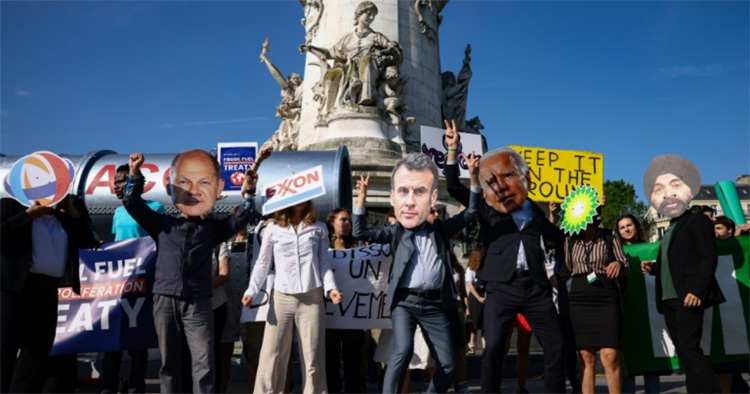Express View on climate meet in France: It signals small steps towards improving climate financing architecture
The increase in the number of extreme weather events in recent years seems to have led to some change in the developed countries’ attitude toward the global climate financing architecture.
But thoughts have rarely matched action. The summit for a “Global Financial Pact on Climate Change” at Paris, last week, too asked the right questions. French President Emmanuel Macron set the tone by calling for a “public finance shock”.
Most other delegates agreed that multilateral institutions should find ways to unlock new climate investments and debt arrangements should include disaster clauses — a two-year pause on repayments after an extreme weather event, for example. Yet, representatives of the developing countries at the two-day summit could not help coming away with the feeling that changes in the funding ecosystem are likely to be incremental, at best, in the coming years.
Amongst the positives of the meet was President Macron’s announcement that there is “a good likelihood” of the rich nations fulfilling, by the end of this year, their pledge for an $ 100 billion annual fund for climate change initiatives in the Global South. That commitment was made in 2009 and developing countries were slated to receive the funds by 2020.
The failure to honour the 14-year-old pledge has become a symbol of the failure of the global climate financing system and aggravated the atmosphere of mistrust in climate negotiations. A course correction could help mend broken fences in the run-up to the COP28 at Dubai in November when the UNFCCC will take stock of the progress — or the lack of it — towards attaining the goals of the 2015 Paris Pact.
Yet, the enormity of the task at hand is such that $ 100 billion today represents a fraction of the amount required by the Global South to develop resilience against climate change — a report released at the COP27 last year, for instance, reckons that developing and emerging economies, other than China, will need $ 2 trillion per year by 2030 for energy transition, adaptation, sustainable agriculture and addressing global warming-related loss and damage.
The IMF announced special drawing rights (SDR) of $ 100 billion to the Global South; France, Japan and the UK also made SDR-related pledges. The World Bank said it will pause repayments “for countries struggling with climate disasters,” but only for repayments. These commitments do indicate a forward movement of sorts. However, any reform in the climate financing architecture shouldn’t overlook the fact that loans today constitute the major source of funds. At Paris, last week, vulnerable countries reiterated that they require grants and technology transfers. That message shouldn’t be lost.


Comments are closed.